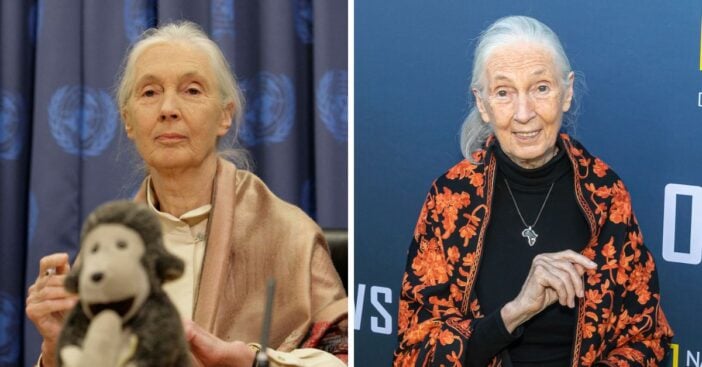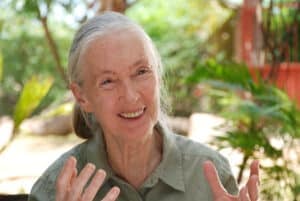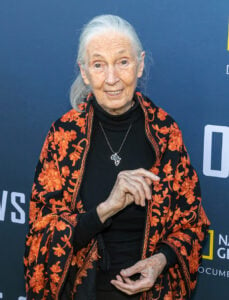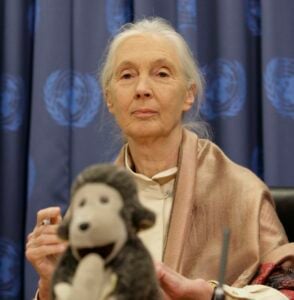
- Jane Goodall died on October 1 at the age of 91.
- While on a speaking tour throughout the United Staes, Goodall died of natural causes in California.
- Goodall is remembered for her animal welfare advocacy, her work as a conservationist, and for reshaping the way scientists understood primates.
Celebrated conservationist Jane Goodall has died. She was 91 when she passed away of natural causes, according to an announcement released on Wednesday by the Jane Goodall Institute. Goodall was in California on a speaking tour throughout the United States when she passed.
Jane Goodall was best known for her pioneering research on chimpanzees in Tanzania’s Gombe Stream National Park, beginning in 1960. She reshaped primatology by showing that chimpanzees use tools, form complex social bonds, and display emotions once thought to be uniquely human. Beyond science, she became a leading voice for conservation and animal welfare through her books, lectures, and the Jane Goodall Institute.
Transforming a branch of study

Jane Goodall was born on April 3, 1934, in London, England, and raised in Bournemouth. From an early age she showed a strong interest in animals, inspired in part by books like Tarzan of the Apes. After finishing secondary school, she worked various jobs, including as a secretary, to save money for a trip to Africa. In 1957 she traveled to Kenya, where a mutual friend introduced her to anthropologist Louis Leakey.
Leakey hired her first as a secretary and then selected her to undertake field research on chimpanzees in Tanzania. With no formal degree in science at the time, she began observing chimpanzee behavior in Gombe Stream National Park in 1960. Her patient, long-term study quickly produced groundbreaking discoveries, including the use of tools by chimpanzees, which challenged prevailing scientific beliefs. This work became the foundation of her career in primatology and conservation.
Jane Goodall leaves behind a sprawling legacy

In her later life, Jane Goodall shifted from field research to global advocacy, focusing on conservation and environmental education. She founded the Jane Goodall Institute in 1977, which supported both chimpanzee research and community-centered conservation projects. In 1991 she launched Roots & Shoots, a youth-led program encouraging young people worldwide to engage in environmental and humanitarian work. These initiatives extended her influence far beyond science, creating concrete programs that connected wildlife protection with human development.
Goodall spent much of the last three decades traveling and speaking, often logging more than 300 days a year on the road. She authored numerous books, ranging from scientific works to children’s titles, and appeared in documentaries that introduced her work to new audiences. Her efforts earned her recognition, including appointment as a United Nations Messenger of Peace in 2002 and countless international honors. By continuing to speak directly to issues of deforestation, climate change, and animal welfare, she remained a respected and practical voice for conservation well into her 80s and 90s.
“Dr. Goodall’s discoveries as an ethologist revolutionized science, and she was a tireless advocate for the protection and restoration of our natural world,” reads the statement announcing her passing. She is survived by her son, Hugo, and by three grandchildren.
Rest in peace, Jane Goodall.

